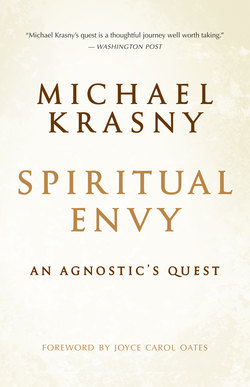Читать книгу Spiritual Envy - Michael Krasny - Страница 14
На сайте Литреса книга снята с продажи.
Chapter 4 WHERE IS GOD? More on Codes and God’s Place in Mine
ОглавлениеTrying to fashion a personal code from a crazy quilt of different readings and perceptions and experiences and feelings presented far more challenges than simply following the Ten Commandments. My heritage I considered Hebraic, despite Koestler’s notion that Russian Jews like me were descended from the Khazars. I studied many of the Talmudists and significant Jewish thinkers like Maimonides (“Teach thy tongue to say I do not know”), Rashi, and Spinoza, and a wide range of poets, including the great English poet Matthew Arnold, who established a cultural and philosophic division between the Hebraic and the Hellenistic. But I also wanted, as a young college student, to look to the Greeks — to Plato especially but also to Socrates, Aristotle, Zeno, Heraclitus, Epicurus, and Epictetus.
Arnold pointed out that Hebraism and Hellenism are polar opposites. He simplified the dichotomy between the two by observing that the former was tied to the moral impulse and the concept that sin and desire hindered right action, while the latter was all about the belief that intellectual impulse, beauty, and desire hindered right thinking. The Hebrews were about strictness of consciousness and conquest over the self, whereas the Greeks were about spontaneity of consciousness and seeing things as they really were. Could these be synthesized? Could Nietzsche’s Apollonian and Dionysian? Could reason and emotion? East and West? Did duality need synthesis?
Whatever fragments I could press into service as part of an ethical code, I included as guideposts, though absolutes soon enough seemed unquestionably out of the question, simply because there were too many antipodes, too much dualism. My Jewish tradition had its split between the Misnagdim, or rational tradition, and the more mystical chassidic tradition, two utterly different ways of seeking and perceiving God. The Misnagdim were cerebral and analytic, while the Chassi-dim wanted to feel God in the viscera or, as the Yiddish would have it, the kishkas. The one tradition was much more bound up in study, and the other in miracles and vision. But both sought God.
